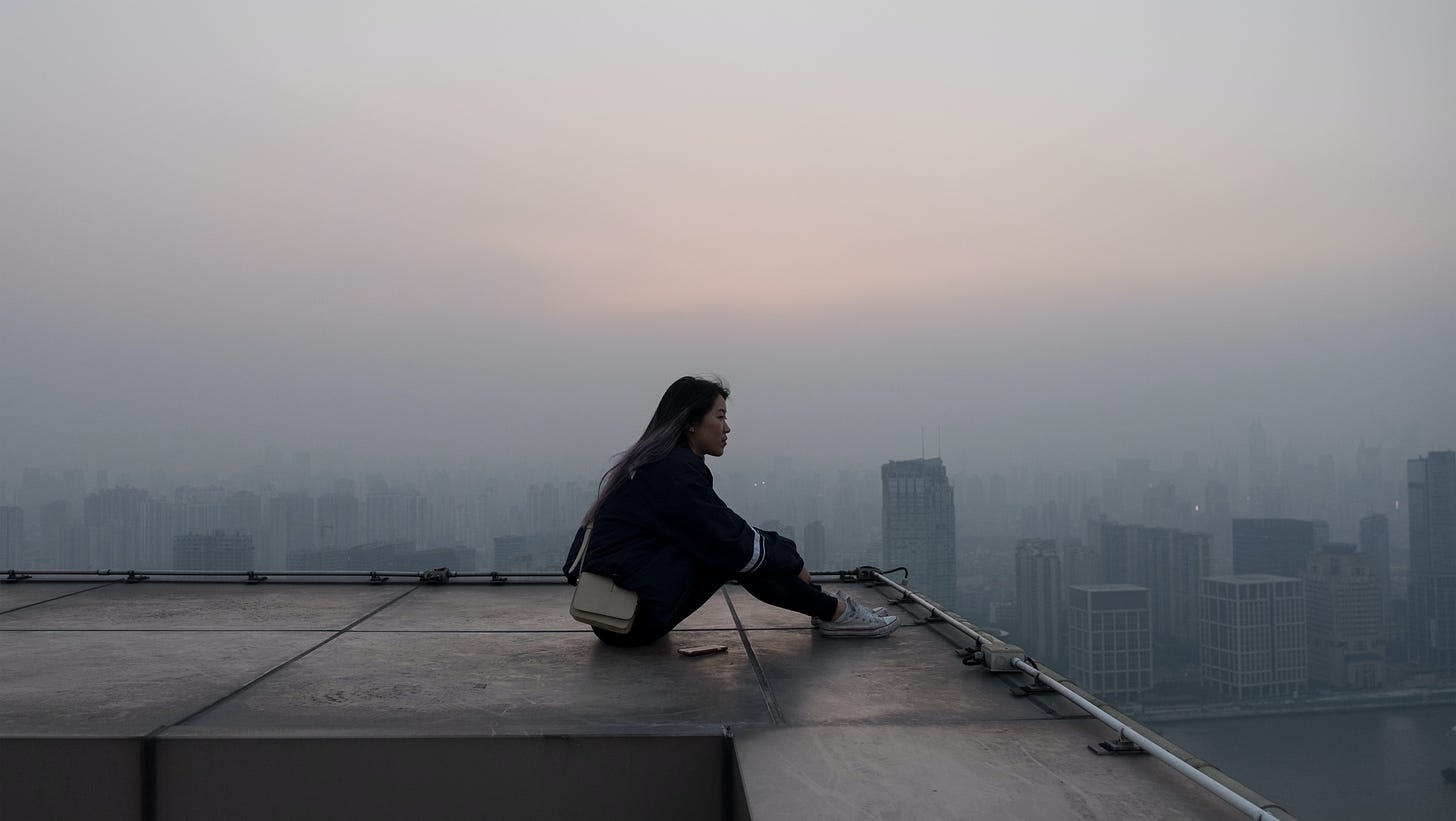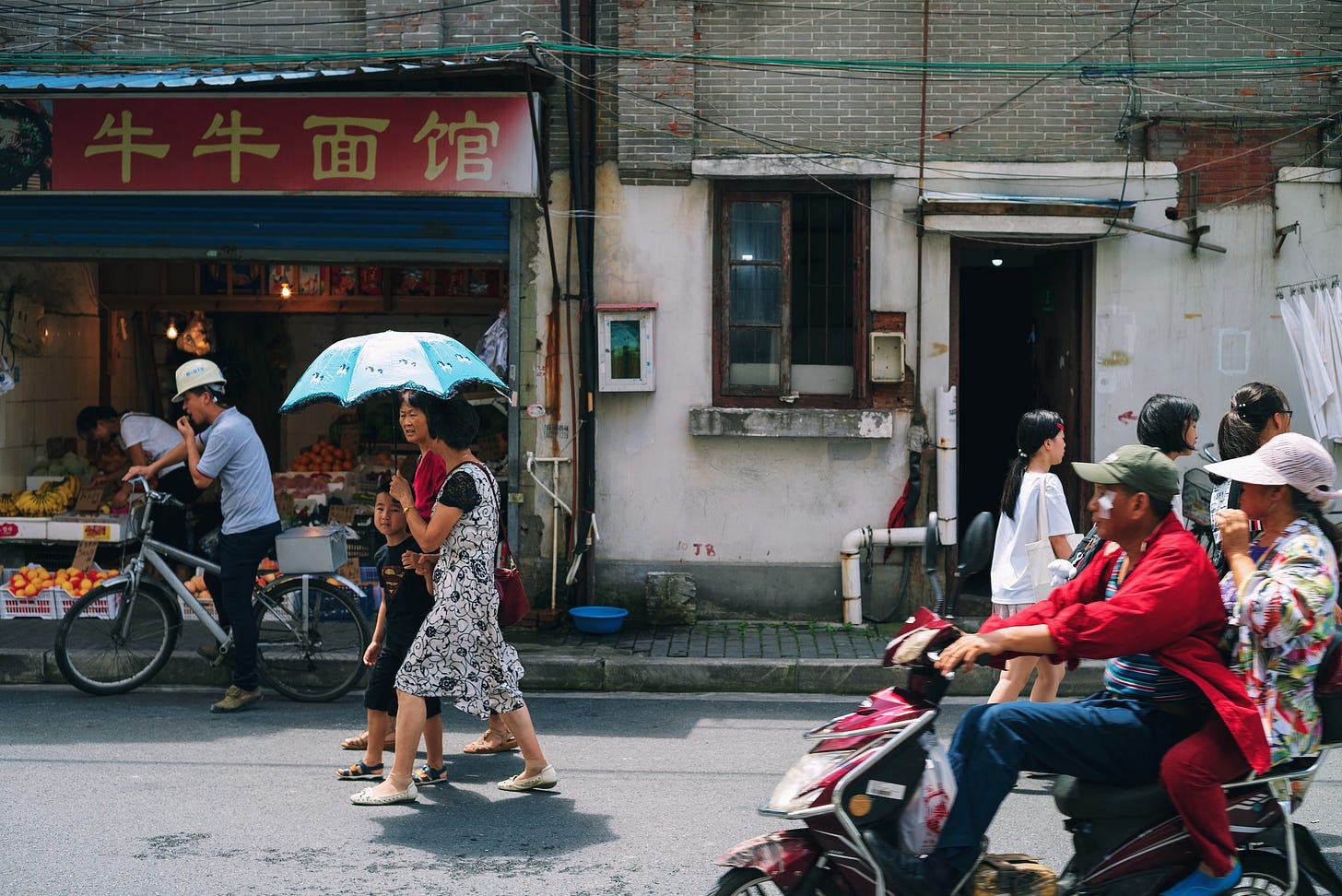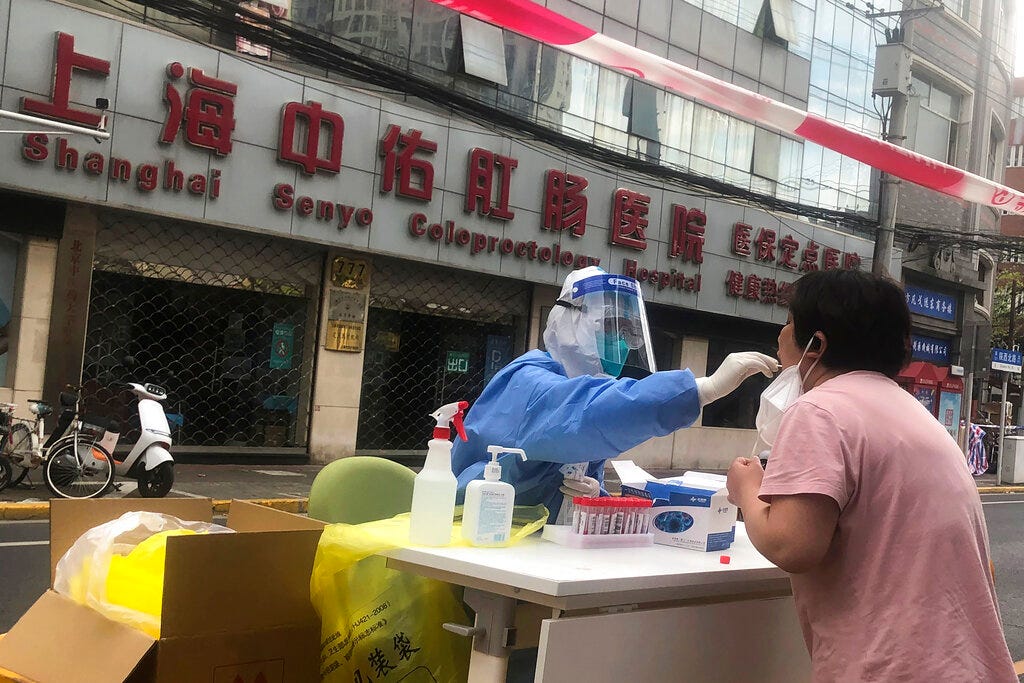Original link: https://sehseh.substack.com/p/202230
I like to read novels, but Chinese contemporary novels are rarely read. One of the reasons is that they are demanding about words. Emerging mainland writers emerge every few years, with more ingenious narratives and less surprising prose, while the old work “ Them” by Ren Xiaowen, a “post-70s” writer, with clean and succinct writing and left blank, is still fascinating to read today. Bright eyes.
“They” was published in 2008. It was part of a series of novels by novel female writers at the time, but it did not arouse much discussion, and the number of people who scored it on Douban has so far been less than 300.
Before I read “Them” with hindsight, the only thing I knew about Ren Xiaowen was that she had a famous short story “On the Balcony” about the demolition of Shanghai, which was also turned into a movie starring Zhou Dongyu. The movie’s ratings are messed up, but the novel is very impressive, because it subverts the stereotype that ordinary people have of the local poor in Shanghai “returning by relocation”.
It is the lucky few who can climb to the sky in one step due to demolition. But most people are not so lucky in any era. This is why I think “Them” written by Ren Xiaowen 15 years ago is not outdated at all if I read it today.
The World Walk has important stories you haven’t read yet. We focus on global issues from a gender perspective, complementing stories of dilemma, breakthrough, connection, and change that traditional power perspectives ignore.
Please pay a subscription to become our partner and walk with women around the world.
What they have in common is that they are not lucky enough
The closure of the city this spring has made Shanghai people who still want to buy coffee after the disaster become the target of ridicule of the whole Chinese people. Outsiders’ impression of Shanghai is like that in the popular Shanghai-language movie “Myth of Love” last year: there are small houses, plane trees, and Internet celebrity cafes; Shanghai women who live in “old and broken” are also wearing clothes on their feet. Jimmy Choo of more than 10,000 yuan.
But Ren Xiaowen, who grew up in the alley of Fengyang Road, never writes about Shanghai under this filter. She uses words with a sense of language to write about the shabby and real Shanghai.
In “They”, the alley facing demolition has “potholes on the ground, mildew on the walls, and mottled paint on the wooden doors.” The faces of Shanghai in her writing are “minor people at the bottom of the hierarchy”. “They” is about women at the bottom of Shanghai—more precisely, some Chinese women who have fallen into destinies for various reasons; but her focus is on the main character “Le Hui” and Zhang Xiuhong, who is intertwined with her life. Sisters Zhang and Meifeng.
Le Hui, molested by her adoptive father, turned from a “three good student” in elementary school to a dropout who was dismissed from high school. After she followed the underworld boss “Mao Tou” who started her career by transporting drugs through the rectum, she lived a life without food and clothing, but was designed by “Mao Tou”‘s ex-girlfriend and lost her left eye. Private prostitutes, and finally become a wandering warbler who does not eat three meals a day.
The structure of the entire novel is concentric circles strung together by Le Hui. Le Hui’s rival in love, adoptive mother, grandmother, adoptive father’s new love, first love’s current girlfriend… Whether they are in the 1950s or the turn of the century, what they have in common is that they are not “lucky” enough. A woman’s misfortune was that in the 1950s it was impossible to give birth to a boy; in the 1990s, it was her husband who messed around with flowers or scattered his family wealth; after the millennium, he was unable to escape from poverty.
“They” also made me think of two questions. First of all, are the misfortunes of these women more caused by themselves or by a patriarchal society? Secondly, is the first 30 years of China’s reform and opening up, the so-called “post-70s” growth years, really a “better” era than the present?
The Patriarchal Structure Behind Women’s Dilemma
“They” begins in 1989. On the TV, people threw rocks at the tank, and off the TV, the adoptive father molested Le Hui.
A close friend of mine, whose mother remarried when she was young, was also molested by her adoptive father. After reading “Them”, I passed a message to her that the character Le Hui was too “contrived”. She didn’t get back to me after a long time. She said it wasn’t “doing,” but a tendency to self-destruct, “because life was ruined from the start.”
Le Hui’s career path has been completely closed since she was dismissed from high school. But Zhang Xiuhong, who graduated from college, made a living on her own after a failed marriage, and went to apply for a job in a dance hall. In 1998, in China, what kind of job could a 32-year-old woman with a blank resume find? As for her younger sister Zhang Meifeng, her husband gambled and lost all his family property. The distance from a rich young woman to being a mistress to a different man was only a short distance away.
So “they” are self-deprecating or are they unkind? Ren Xiaowen’s writing style is easy to think of Flaubert’s realism model. Her tone of writing is not critical, and although the story is sharp, she only relies on precise line drawing to show the fate of these women who seem to be “different from the same people” and ultimately return to the same destination.
Behind the predicament of “them”, there are always reasons for men: sexual violence, patriarchal, chastity, objectification of women, and workplace inequality—the long-standing patriarchal social structure, in the depths of more than half a century, has been closely linked. Trapped the fate of Chinese women.
Are ‘them’ completely inactive in the structure? Not quite. Women’s actions are limited by patriarchal structures, but as Giddens said, structures also provide “rules” and “resources.”
Sisters Le Hui and Zhang Xiuhong and Zhang Meifeng have both accepted the “rules” and “resources” from men, but their actions themselves are deeply affected by the structure – to please or to be loyal can only be exchanged for men’s long-term choices and a decent life. And even so, it is difficult to guarantee that there will be no sudden change and everything will be lost.
Does this sound like a miserable experience for women of the last generation?
In China in 2020, “menstrual poverty” will also be trending on Weibo; in China in 2022, the average salary of women in the workplace will still be about 20% lower than that of men; not to mention those who have divorced and become single mothers or Women who were forced to help their husbands repay their debts are still revolving around the fate of Zhang Xiuhong and Zhang Meifeng. A very harsh reality is that women are far more likely to be impoverished than men at turning points.
Ren Xiaowen once said, “When a woman bears the heavy blows of the times and life,” the “soft and hard collision” is particularly impactful. The impact of “Them” also comes from this.
As a result of the collision, there will be injuries. Zhang Xiuhong and Zhang Meifeng stuck the pieces together and continued to move forward, while Le Hui was so injured that she couldn’t stick together. The women who can successfully “counterattack” after fighting against fate are only a very lucky few, while the majority of the other losers are unfortunate and “more unfortunate” people.
The heavy blows of the times and life are of course not only aimed at women.
That era was no better than now
The main historical background of “Them” is 20 or 30 years ago, that is, before the rise of China in 1989. From today’s perspective, it was an era when “opportunities are everywhere,” there was little competition pressure, and there were passages for class advancement. However, reading this novel in the context of China’s current economic recession, layoffs and salary cuts, and young people’s desire to return to the “system”, I am more certain that the era was not “better” than the present.
From the end of the 1990s to the beginning of this century, China was in a vacuum stage of market order and moral civilization. The whole society is changing rapidly in the law of the jungle, and the logic of competing for resources such as money and sex is also very primitive.
In an era of disorder, it is more difficult to achieve a class jump through normal channels, and there is no so-called middle class. Therefore, the men in “Them” are either rich people who live in villas by selling drugs, speculating in stocks and reselling approval documents, or working class people like Le Hui’s adoptive father who live in filthy alleys and patronize private prostitutes.
And women in such jungles are only worse off, where sexual harassment and sexism are commonplace, and the workplace environment is less friendly. Le Hui went to work in a clothing store, commuting six hours a day, nine to nine, working one day off and one rest, earning 800 yuan a month, and was finally fired. Independence is a harder path for “them” than being wives, mistresses and sex workers.
Some critics say that in Ren Xiaowen’s novels, the characters’ lives are “continuously downward”. After reading some of her works, I found that the “feeling of falling” in the life encounters depicted in “Them” has indeed been running through her creations.
In 2015, Ren Xiaowen’s “Life, But That’s It”, wrote about Jiang Shu, a “post-85” Shanghai native girl who was born a few years later than Lehui. Jiang Shu’s “lost and hopeless” life after graduating from a third-rate university was called “a more real “Thirty Only”” by Douban readers.
Ren Xiaowen’s skill is that she always understates the times, but she can clearly see how ordinary Chinese women of the generation from the late 1970s to the 1980s, how their youth was wasted in the transformation of society, and the subsequent life can only be stay on the ground floor.
Each era has crushed the lives of most people with its own cruel face. This was the case in the first 30 years of China’s reform and opening up, and this year’s massive wave of “flexible employment” is the same. The fate curve of the little people is always highly similar, it is more difficult to protect themselves in the face of unexpected events, and the probability of falling into a desperate situation is also higher.
So in today’s current situation, reading “Them” is probably appropriate. At least, we can see some other despairing stories belonging to Shanghai. (Finish)
About the Author| Jia Xuanning (Born in Beijing, raised in Hong Kong, now living in Taiwan. Media person, commentator, but his main job is to do academics, focusing on Hong Kong and Taiwan regional studies, comparative politics and cultural studies.)
Subscribe to the Walk Around Newsletter and we’ll deliver:
[Members only] Go original: a good story that others have not written yet
An Evening News Every Day: A selection of daily news summaries for you
Weekly Newsletter: Good articles from around the world that you may have missed
A Weekly Note: A Weekly Guide to Online Activities
【Exclusive benefits for other members】» See here
In China, the usage of “too ‘too”‘ has many meanings, which can be used to describe pretending, being unreasonable, or looking for trouble.
This article is reproduced from: https://sehseh.substack.com/p/202230
This site is for inclusion only, and the copyright belongs to the original author.


